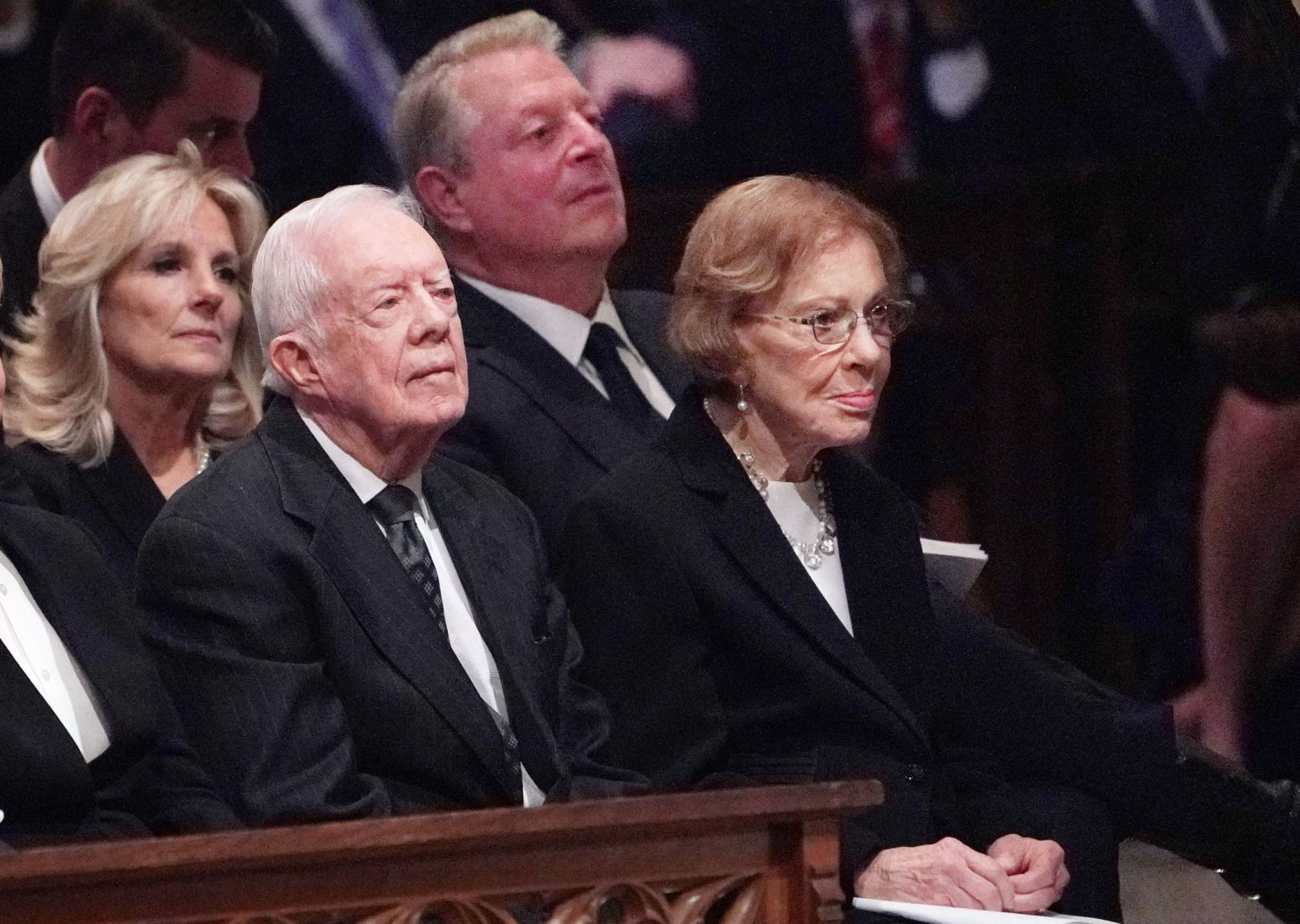A Life Dedicated to Service: Remembering President Jimmy Carter (1924-2024)
Jimmy Carter, the 39th President of the United States, passed away at the age of 100, leaving behind a remarkable legacy of public service, humanitarianism, and an enduring love story. His life, intertwined with that of his beloved wife, Rosalynn, was defined by a commitment to peace, human rights, and the betterment of humanity. From his humble beginnings in Plains, Georgia, to the highest office in the land and beyond, Carter’s journey was marked by integrity, compassion, and an unwavering dedication to his principles. His presidency, though a single term, laid the groundwork for significant progress in international relations and domestic policy. His post-presidency work, through The Carter Center, cemented his place as a global champion for peace and human rights, earning him the Nobel Peace Prize in 2002.
Carter’s story began in rural Georgia, where he met and fell in love with Rosalynn Smith. Their 77-year marriage, the longest in presidential history, served as a bedrock for his personal and professional life. Rosalynn, described by Carter as his "equal partner," played a crucial role in his political career, offering invaluable advice and support during his presidency and his subsequent humanitarian endeavors. Their shared commitment to service manifested itself in their tireless work advocating for mental health, women’s rights, and human rights both during and after their time in the White House. Their enduring love story and partnership served as an inspiration to many, demonstrating the power of shared values and unwavering support.
Carter’s presidency, spanning from 1977 to 1981, was marked by significant achievements in both domestic and foreign policy. He brokered the historic Camp David Accords, a peace agreement between Israel and Egypt, a landmark achievement that reshaped the political landscape of the Middle East. Other notable achievements included the Panama Canal treaties, a strategic arms limitation treaty with the Soviet Union, and deregulation efforts in several key industries. Domestically, Carter focused on environmental protection and established the U.S. Department of Education, demonstrating his commitment to both conservation and educational advancement. While his presidency faced challenges, including economic difficulties and the Iran hostage crisis, his administration laid the groundwork for future progress in various areas.
Beyond the confines of the Oval Office, Carter’s true calling emerged through his work with The Carter Center, which he founded with Rosalynn in 1982. Dedicated to promoting peace, democracy, and global health, the Center became a platform for their unwavering commitment to human rights and alleviating suffering worldwide. Their efforts focused on conflict resolution, election monitoring, disease eradication, and promoting access to healthcare. Rosalynn, a driving force within the Center, also championed mental health awareness and caregiving support through the Rosalynn Carter Institute for Caregiving. Their hands-on approach, evident in their annual participation in Habitat for Humanity projects, showcased their dedication to serving those in need.
The passing of Rosalynn in 2023, after a battle with dementia, marked a profound loss for Carter. He described her as his "wise guide and encouragement," highlighting her profound impact on his life and work. His own passing, just a year later, brings to a close a remarkable chapter in American history. Their shared legacy of service and compassion will continue to inspire future generations to strive for peace, equality, and a more just world. Their commitment to human rights and their tireless efforts to improve the lives of others stand as a testament to their unwavering belief in the power of humanity.
Carter’s passing has been met with an outpouring of grief and tributes from around the world. His son, Chip Carter, remembered him as a "hero" who believed in peace, human rights, and unselfish love, emphasizing his father’s ability to unite people through shared values. Public funeral observances are planned in both Atlanta and Washington, D.C., followed by a private interment in Plains, Georgia, offering a final farewell to a man who dedicated his life to serving others. The world remembers not only a president, but a humanitarian, a peacemaker, and a man who exemplified the best of human values. His life and work will continue to inspire generations to come to strive for a better world, one characterized by peace, justice, and compassion.

